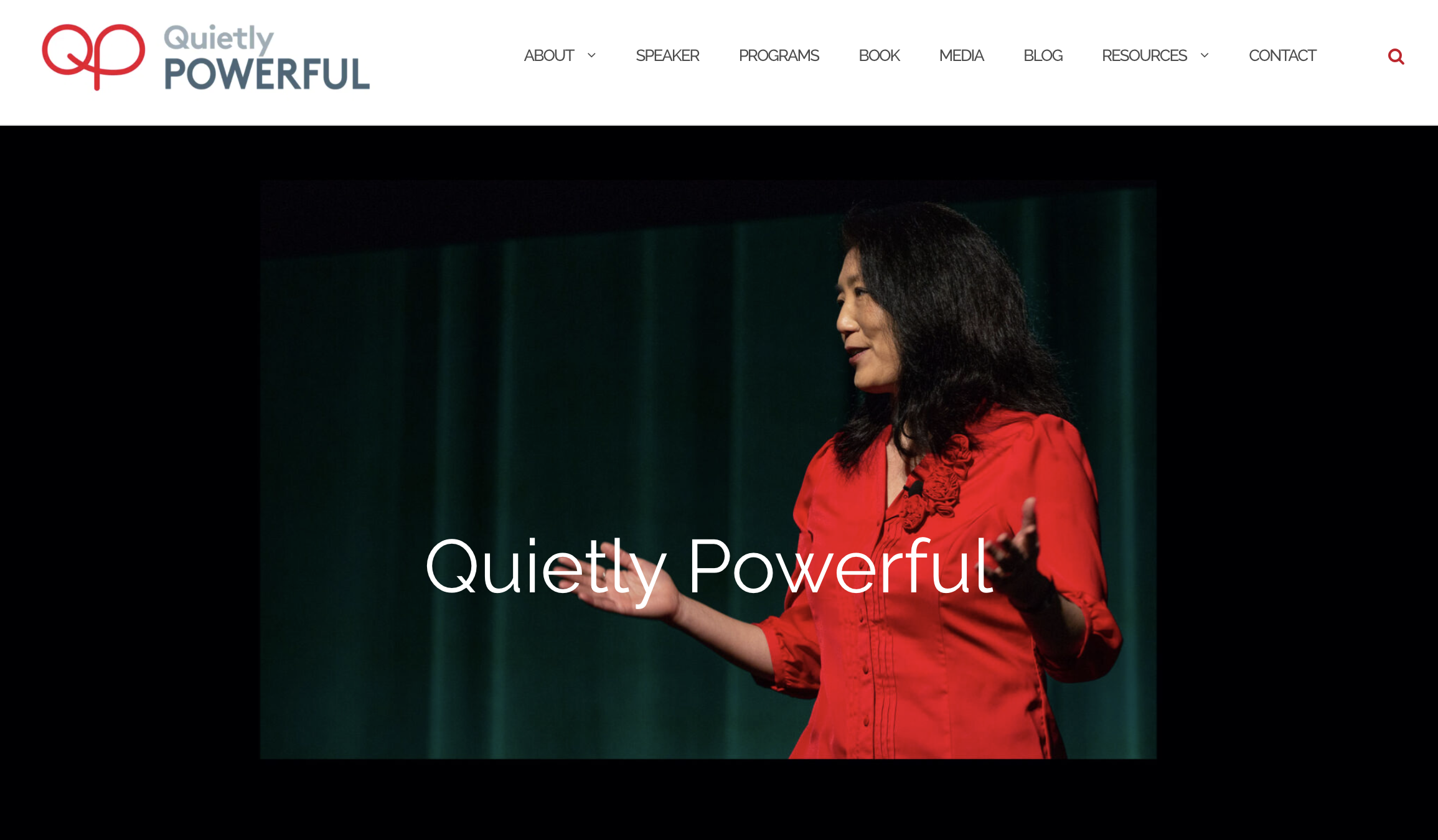My Blog
7 reasons why we need more quietly powerful leaders – now, more than ever
- Details
- Posted: 07 February 2019
My last article Quietly Powerful Leaders – who are they and why don’t we have enough of them outlined the key attributes observed in Quietly Powerful Leaders whom I interviewed and why we don’t have enough of them, based on conversations and research.
Late last year I had the opportunity to discuss the attributes of Quietly Powerful Leaders and why we need them with a diverse mix of CEOs, company directors, entrepreneurs, consultants, HR, talent and recruitment professionals. I am increasingly seeing that more Quietly Powerful Leadership – regardless of personality (ie. this is not just an introvert thing) – is needed now, more than ever.
Here are seven reasons why (studies and more detail on this topic will be shared soon in a white paper – join the Quietly Powerful Newsletter HERE to be the first to receive it):
- Our world is more complex and leaders cannot know everything
Leaders who dominate conversations and fail to listen to and consider ideas from a variety of people, including those who may disagree with them, will make uninformed choices and limit creative thinking.
Quietly powerful leaders gather intelligence and generate creative ideas from a variety of sources, listen and be influenced by them and then make decisions. They are more likely to make informed, wiser choices. In addition, they are more likely to develop proactive people who want to contribute their expertise and creativity.
- Multi-cultural, multi-national organisations, clients and partners adds further complexity
Multi-national organisations and organisations expanding or outsourcing offshore have experienced this, sometimes resulting in great difficulty, that different cultures bring different perspectives, ways of operating and interacting. Dominant, outspoken, alpha, charismatic and potentially arrogant or narcissistic leaders who do not adapt are a risk to these complex relationships and ultimately the organisation’s success.
Quietly powerful leaders would typically spend more time listening and observing to understand before communicating or taking action. They allow more space for others to share their way of working, rather than imposing their own. Their humility is often received with respect and speeds up trust building.
- Short termism and simplistic approaches to complex issues can make things worse
How often have you been frustrated by some people’s tendency to oversimplify complex issues or the solutions to them? When leaders buy into this approach, we end up with a list of quick wins and band-aid solutions to perhaps slow the ship from sinking, but the ship is sinking nonetheless. Everyone is busy doing things, with a to-do list that keeps growing.
Considered approaches taken by Quietly Powerful Leaders can sometimes be labelled as slow or indecisive, however, in complex situations we face today, we need such patience and thoughtfulness.
- All talk, no results do not cut it anymore
Many of us have seen the polished presentations, great promises and self-promotion result in nothing. Of course, there may be valid reasons for the non-delivery. However, can organisations afford to continue this pattern, rewarding those with style but insufficient substance?
Quietly Powerful leaders may not be seen as selling themselves or their ideas as vocally, but they are often the ones that persist and deliver. It is not to say that they shouldn’t share their achievements and learnings, but overemphasis on personal branding and self-promotion above delivery reinforces the bias for style against substance (see Bias towards style over substance is keeping your real talent hidden).
- We need more leaders to emerge at every level
Where people are overly reliant on the few leaders at the top to solve problems, make decisions and take charge, the organisation is more easily destabilised by the leaders’ absence. It also reinforces a low accountability culture where fingers are pointed upwards, especially when thing go wrong.
Quietly powerful leaders create the space for more people to step into leadership. They prefer not to be the centre of attention so sharing power and consulting people to gain input from all levels often comes naturally. They enable teams to take the lead in their domains or where they have strengths.
- An inclusive culture, attracting and retaining diverse talent are no longer nice to have, especially where there is a talent shortage
The need to attract, retain and engage talent is more critical than ever before. While organisations can pay more and offer attractive conditions, organisational leaders and culture have a significant, if not greater influence on talent attraction and retention.
Quietly powerful leaders are often inclusive due to their listening, observation skills and curiosity to find talent where others may have overlooked them. They can also be the mentor that instils self-belief, including inspiring those in the minority who have been marginalised.
- Ego, greed, self-interest driven leadership/culture, misuse of power cannot continue
There seems to be no shortage of news about leadership failures where greed and self-interest have taken over. Most recently, the Australian Banking Royal Commission has publicly highlighted examples. There have also been examples where leaders have misused their power, whether it’s abuse of corporate or public funds or bullying and harassment.
Misuse of power often originates from lack of inner sense of personal power or self-esteem (see Julie Diamond’s book, Power: A Users Guide). Quietly Powerful Leaders have humility that comes from being comfortable with themselves such that ego, greed, self-interest take the back seat.
I’d like to point out here that quiet leaders are not necessarily quietly powerful leaders. Quietly powerful leaders have the inner sense of power that enables the humility, presence and purpose-driven approach to shine through in their leadership. These attributes not only provide great value to organisation as described above, they can be the antidote to poor leadership. This is why we need more quietly powerful leaders now, more than ever.
Is your organisation and leader able to get past “judging by first impression”, identify and harness the value of quietly powerful leaders? Are you developing quietly powerful leadership in your organisation to navigate the complex environments with a more purpose-driven, empowered culture?


